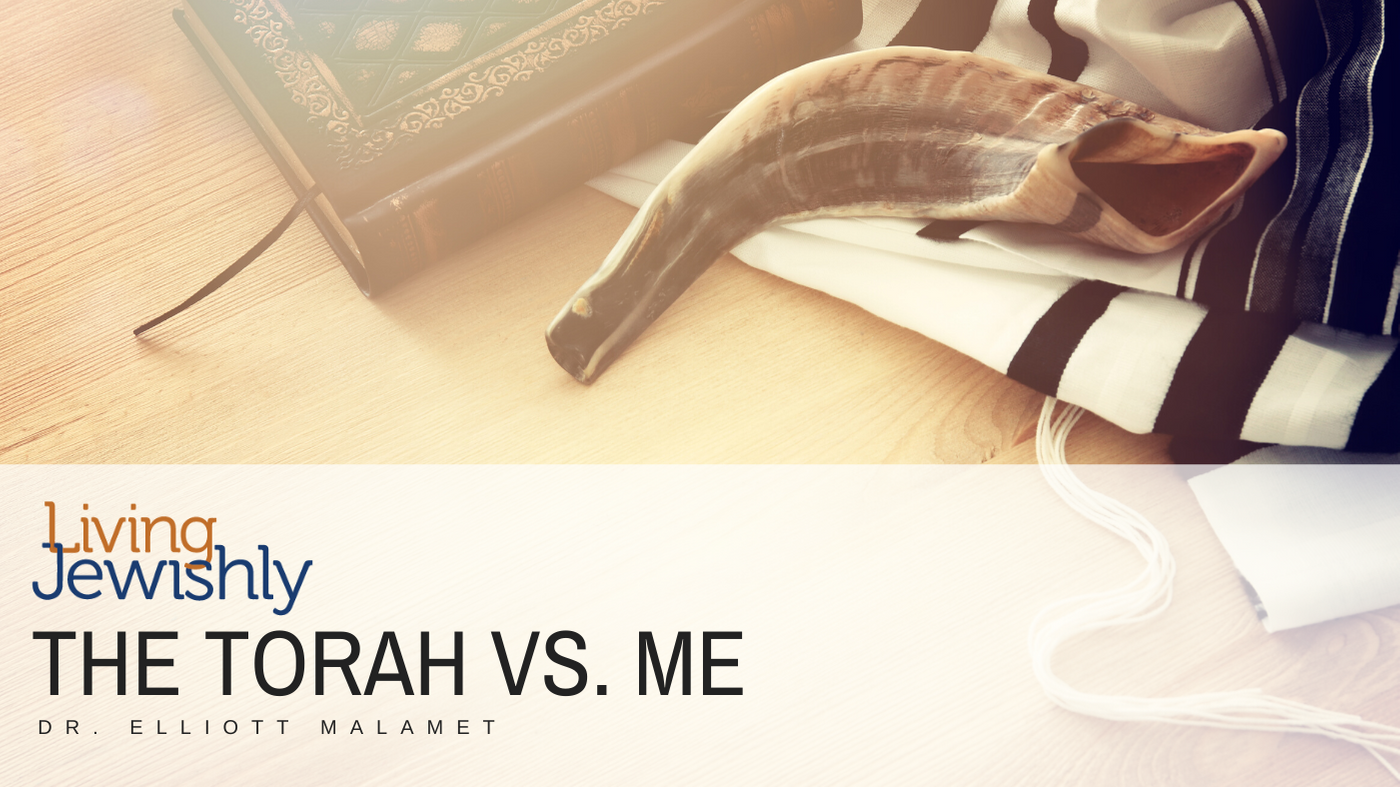Today, the relevance of religious authority has been severely challenged by the driving impulse of the modern world, which is the search for personal authenticity. The very notion that anyone has the right to tell me anything about how I should live, short of reminding me not to harm others, is considered to be an invasion of personal space, an oppressive breaking of appropriate boundaries and a fountain of judgmentalism. How does Judaism survive or thrive in an age of autonomy. Read on…
Like many young people struggling to find their place in the modern world, the philosopher Soren Kierkegaard, at age 22, was uncertain about his purpose in life. So in the summer of 1835, Michael Kierkegaard sent his son to a remote fishing village in the north of Denmark for what has been called a “vacation of self-knowledge.” Taking many solitary walks by the sea, the young Soren grappled with his direction and his future. In a journal entry we have from that time, we see Kierkegaard is trying to work things out: “The crucial thing is to find a truth which is a truth for me, to find the idea for which I am willing to live and die.”
Kierkegaard found in Christianity that truth he so avidly sought, but the language he uses is familiar to us – the modern value of being in touch with oneself – “a truth which is a truth for me.” As one of the founding figures of what would later become known as existentialism, Kierkegaard somewhat paradoxically would negotiate with the religious authority of Christianity by continuously stressing the need to be an individual, to fight for selfhood even as he persistently asserted the ultimate pre-eminence of God.
An issue I see repeatedly arising in various forms in contemporary Judaism is the clash between personal authenticity and the demands of religious tradition and authority. What happens when your inner moral and emotional compass, your sense of who you must be in order to be real, is ostensibly opposed by the Torah? On the other hand, what is the price paid for such autonomy?
There are many examples of this impasse between authenticity vs. authority, whether it is about gender struggles for religious equality, diverse expressions of sexual orientation, or less dramatic but no less weighty pulls of conscience with regard to any particular commandment or practice we may find unpalatable.
There is no area in modern life where people feel that their autonomy is more sacred than whom they can love and marry. But the Torah lists the women whom a Cohen may not marry, among them converts to Judaism. The halacha gives a female convert the blanket and disturbing designation of a zonah, a promiscuous woman. Such women are forbidden to the Cohen. An analysis of this law is not my part of my brief here. But if you are a Cohen in our day, and you fall in love with one of these women, what should you do? Walk away and hope you’ll find someone else? Defy the halacha? Try and prove you are not a Kohen or she is not a convert? And what happens if you are a halachically faithful rabbi, and the Cohen and his beloved knock on your door?
Many years ago, two rabbis took two very alternative paths in confronting this troubling problem. David Hartman, when he was a pulpit Rabbi in Montreal, was approached by a 45 year old man in his congregation, a serious Jew—Hartman calls him Peter–who had failed to find romantic love for his whole adult life, but had finally, to his absolute exhilaration, met a woman with whom he wanted to share the rest of his life (call her Susan). Susan was also a congregant, who never missed a Shabbat service. And then, Peter after joyously describing his plans to an Orthodox friend, received the crushing halachic information which he had not known: that since Peter was a Cohen and Susan was a convert, they could not marry Jewishly.
R. Hartman describes the scene when Peter walks into his study: “his whole being seemed to buckle under the weight of this unbearable, inscrutable decree.” And then, R. Hartman reaches a startling conclusion for a rabbi of an Orthodox shul: “The notion of telling these two very serious Jewish seekers that they must deny themselves the happiness of marriage because of this now obscure, ancient principle seemed unacceptable as the ground for destroying their dream to build a new life. I told Peter that I would be honoured to perform the wedding.” R. Hartman understood how controversial his stance was and how it would have been opposed universally in the Orthodox world and what would have been the response of R. Joseph Soloveitchik, his teacher: “He would have disagreed in the strongest possible terms with my decision to marry Peter and Susan. He would not have seen it as a joyous occasion, but one of mourning for the loss of something far greater than the love of two people. I can say this confidently because he once described in a lecture, his response, when a parallel case came before him.” And in that case, R. Hartman relates, R. eitchik instructed the woman to walk away. And she did.
The Cohen’s dilemma reflects a much larger debate about Jewish law and life in 2020. For some, this halacha constricting the Cohen’s romantic possibilities seems immoral and outdated and symbolizes a religion that is losing relevance. And for others, it is quite the reverse, and the surrender to God’s will even when something seems hard to fathom is the hallmark of a noble religious tradition, where you must humbly accept the limits of human understanding.
No one has written as intelligently about the moral value of authentic living than the Canadian philosopher Charles Taylor: “Each of our voices has something of its own to say. Though this search for inner identity can degrade into all sorts of narcissistic and trivial manifestations, the desire to be true to oneself has a tenacious and complex hold on modern consciousness in a way that, historically, was unthinkable not that long ago. And it could very well be that this belief [is]… that each of us has a specific and purposeful inner being, a destiny that is unique and non-exchangeable.”
Taylor argues that the ethic of authenticity is something relatively new, and begins to emerge towards the end of the 18th century. What is new here, as the Enlightenment gains steam, is the idea that being authentic is its own value, that somehow a life well lived is to not betray one’s own feelings or inner truth or live according to the voice of others, if it does not fit what we really desire or believe is our destiny. That there is a certain way of being human, of being in the world, that is my way. And further, that I am called upon to live my life in this way; indeed, it is a solemn moral duty to do so. And that if I do not live this way, then in some profound sense I miss the very point of my life, I forego what being alive is for me. And so authenticity becomes a very important, if not the most important, modern ideal. If one were to leave matters at that, it would seem like a very troubling prognosis for those who wish to profess allegiance both to tradition and to conscience, who have loyalties to Jewish law and history but also to their own sense of life. But perhaps these binaries of reason and revelation, authenticity and authority, me and God – perhaps these simplify what is in Jewish terms a subtler and more nuanced conversation.
For one thing, the experience of not only the modern Jew, but virtually all Jews for all of history, was not about hearing God’s voice directly revealing absolute immutable truths. Judaism has never been about unmediated revelation, or the either/or of just reason or just revelation.
For the philosopher Emmanuel Levinas, the hiding of the divine face, is in many ways, a great blessing, for it allows human beings to be responsible and not have to be, in his words, “always in God’s debt” a burden that would be insurmountable. Far from demanding blinding obedience, God’s absence is to allow for Torah, and what we do with Torah to be the instrument of growth. Judaism as an interpretive tradition is therefore not just a commonplace platitude, but an imperative in the wake of the terrifying alternative of trying to manage God directly, without text, without creativity and independence.
But, is any form of reinterpretation possible in order to validate contemporary forms of personal authenticity? And if we do that, is the Torah a meaningful text any longer? Were all such reinterpretations were viable, and I am not sure they are, it would be disingenuous to suggest that the clash we have been discussing can easily dissolve with some innovative textual interpretations which will open up the halacha. For many people even the most creative hair splitting is still going to leave a gap between religion and themselves.
In an age of autonomy, any religious tradition, any system which tells you there are things you must do, regardless of how user friendly those commands might be, will be subject to challenge. This is true not just with examples that seem more of an obvious conflict like LGBTQ vs. Torah, but even with commands that appear to dovetail very nicely with modern sensibilities (love your neighbour) because the very fact of accepting an external command in age of autonomy, even if you agree with the command, is something we feel we must own for ourselves. Love your neighbour – don’t tell me what to do, I’ll decide whether I want to love my neighbour.
But as R. David Wolpe of Los Angeles writes, “Institutions can be slow, plodding, dictatorial; they frustrate our desires by asking us to submit to the will of others. But institutions are also the only mechanism human beings know to perpetuate ideologies and actions. If books were enough, why have universities? If guns enough, why have a military? If self-governance enough, let’s get rid of Washington. The point is that if you want to do something lasting in this world, recall the wise words of French Catholic writer Charles Péguy: “Everything begins in mysticism and ends in politics.” A vision needs a blueprint.
As R. Wolpe concludes, being religious does not mean you have to agree with all the positions and practices of your own group. But it does mean testing yourself in the arena of others. Spirituality is a feeling. Religion is an obligation. It is hard to be a child of the new age. It is hard sometimes to transmit spirituality as opposed to religion.
But saying this does not mean that authority gets a free pass. There is a disturbing mentality I hear sometimes that says religious institutions should not worry about their critics, because no matter what we do they will not be interested in our product. Well, that may be true in some cases, but it certainly does not let Orthodoxy off the hook when it comes to relevance, compassion, intellectual honesty and social awareness. So the quest for authenticity certainly poses a formidable challenge for halachic Judaism.
We have one shot at figuring our lives, so there is an urgency in terms of working out the fundamental issues. Yeshayahu Leibowitz once argued that “the question `what does religion offer to me?’ must be completely dismissed. The only proper question is: “what am I obligated to offer for the sake of religion.” Time will tell whether Jews and Judaism can coexist in a way that will allow room for both of those questions.


0 Comments